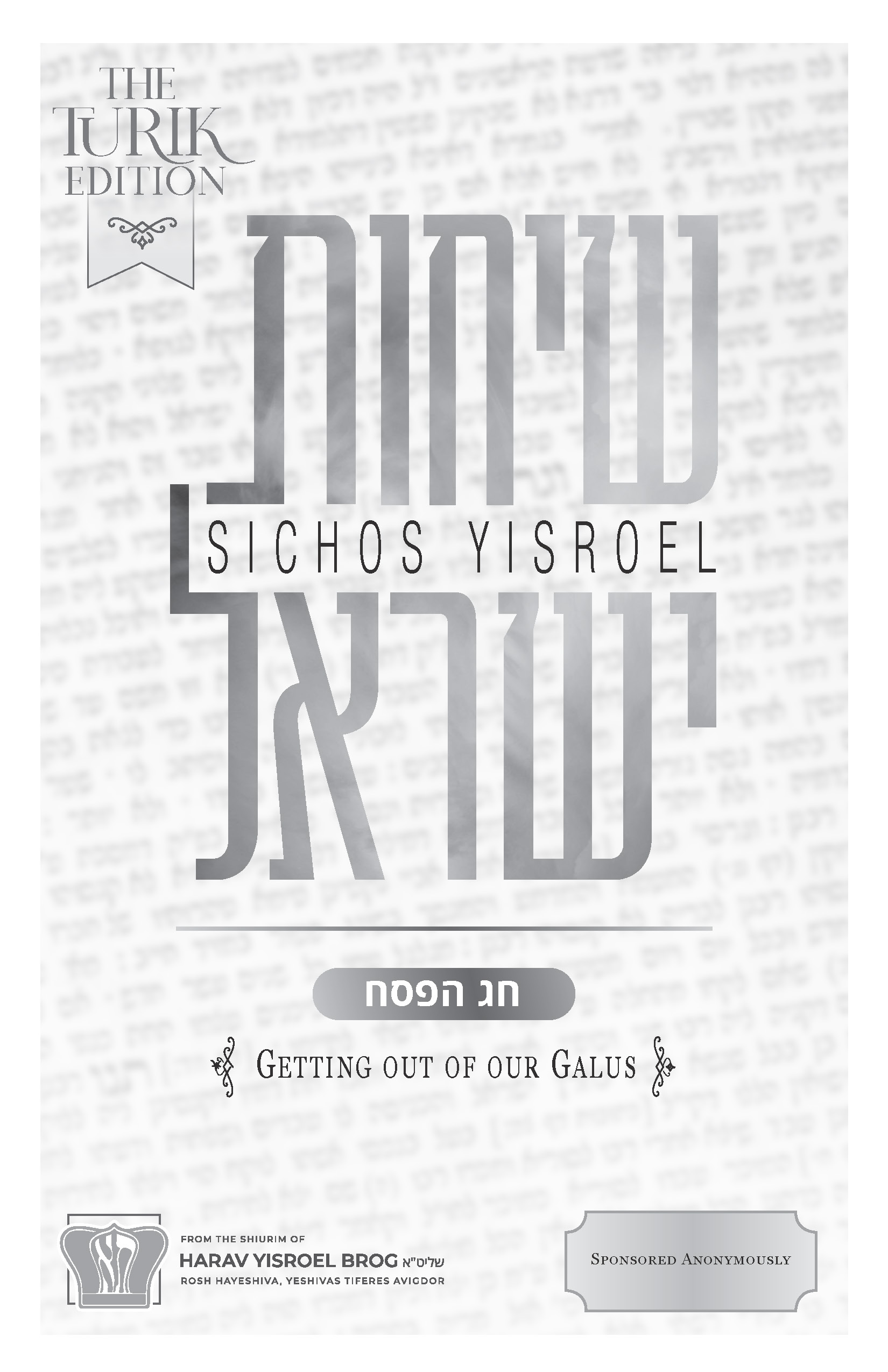
Similar Posts
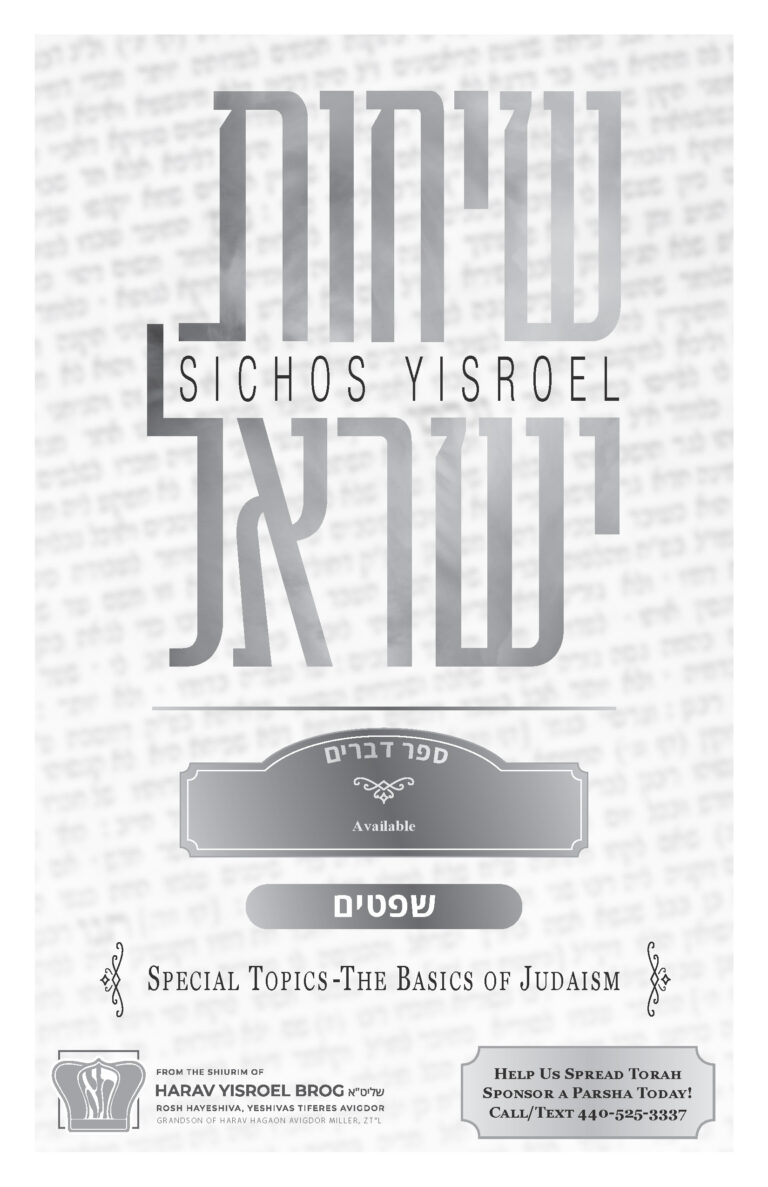
Shoftim 5783: Special Topics: The Basics of Judaism
Now, this principle of Creation and Control is such an important principle because everything about life for every individual, Jew, and non-Jew, is built upon these two things. It refers to the fact that I’m created and the fact that somebody exerts control over the world and over my life.
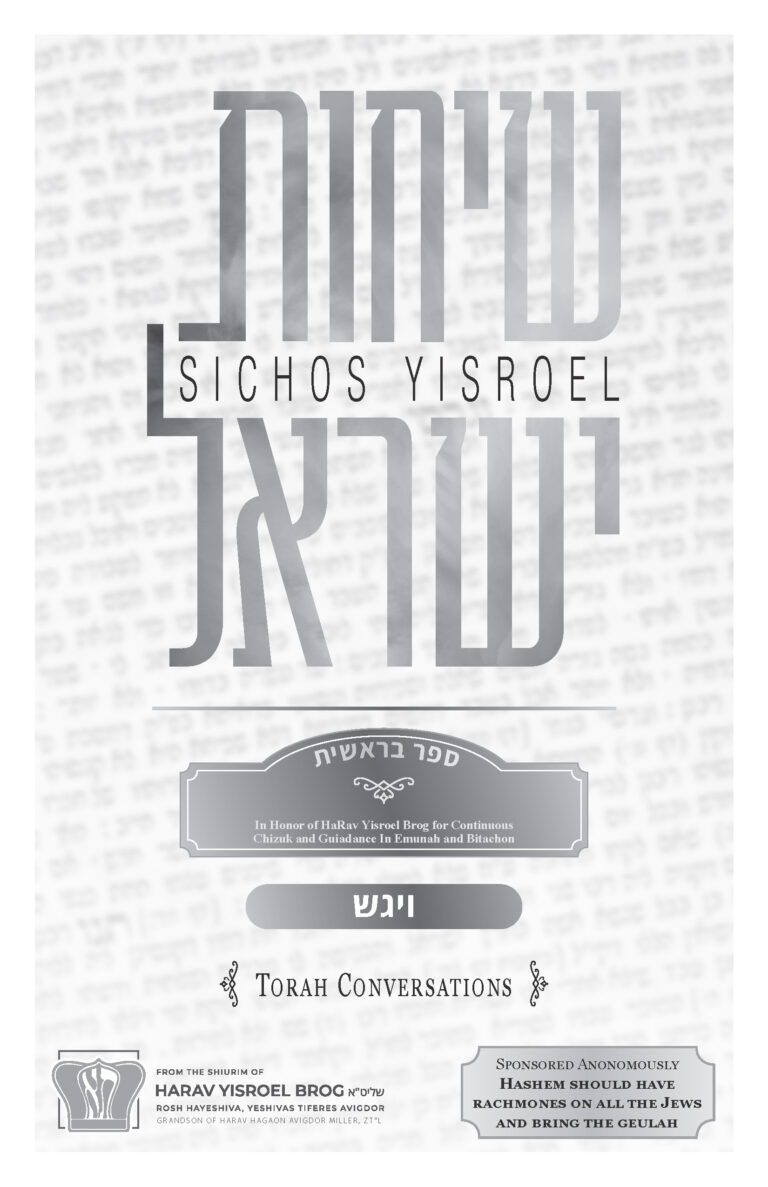
Vayigash 5784: Torah Conversations
One of the great tovos that Hashem did with me is that He guided me to learn by my great rebbi, Rav Meir Halevi Soloveitchik, the son of none other than Rav Yitzchak Ze’ev Halevi Soloveitchik, the last Brisker Rav.
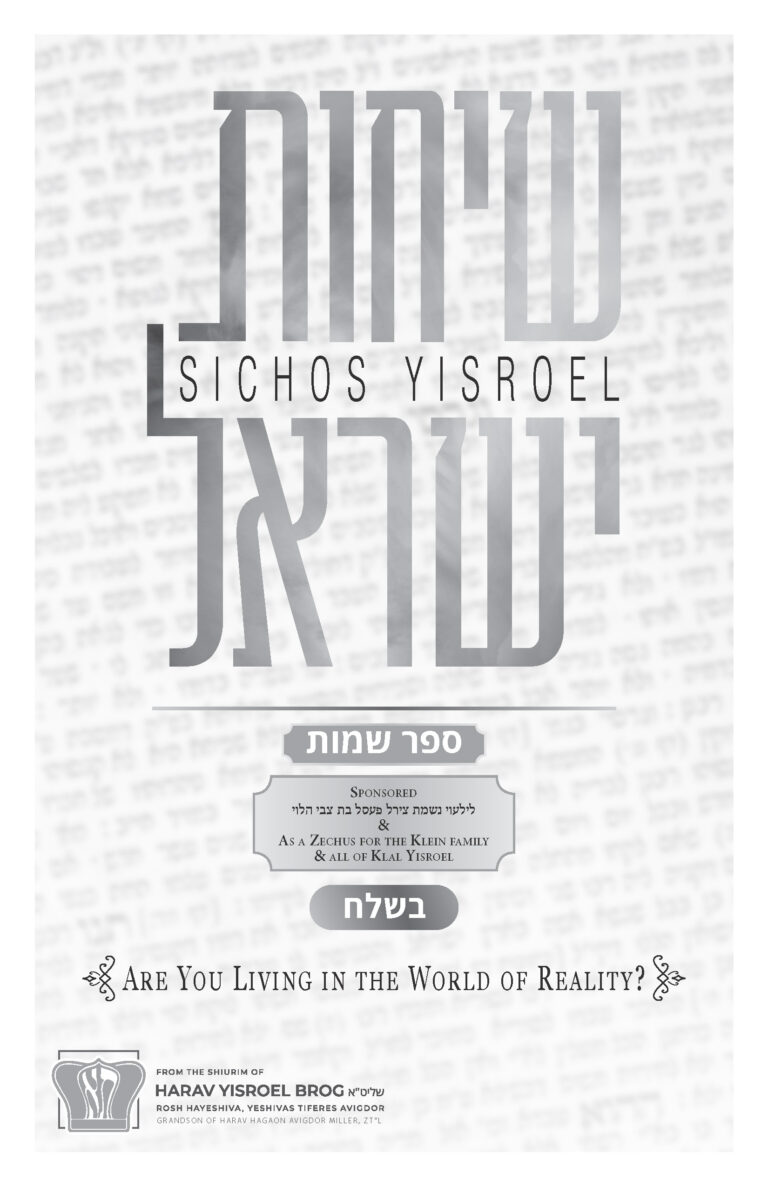
Beshalach 5784: Are You Living in the World of Reality?
The Torah relates that after Klal Yisrael came out of Mitzrayim, they witnessed the greatest historical event and the greatest revelation up to that point in the history of the world. They saw myriads of makkos, hundreds of makkos. They saw Hashem taking apart Mitzrayim brick by brick. They saw Hashem playing with the Mitzri’im. They saw krias Yam Suf. They were able to point with their finger and say זה קלי ואנוהו, “this is My God, and I will glorify Him” (Shemos 15:2). They saw ananei hakavod, clouds of glory.
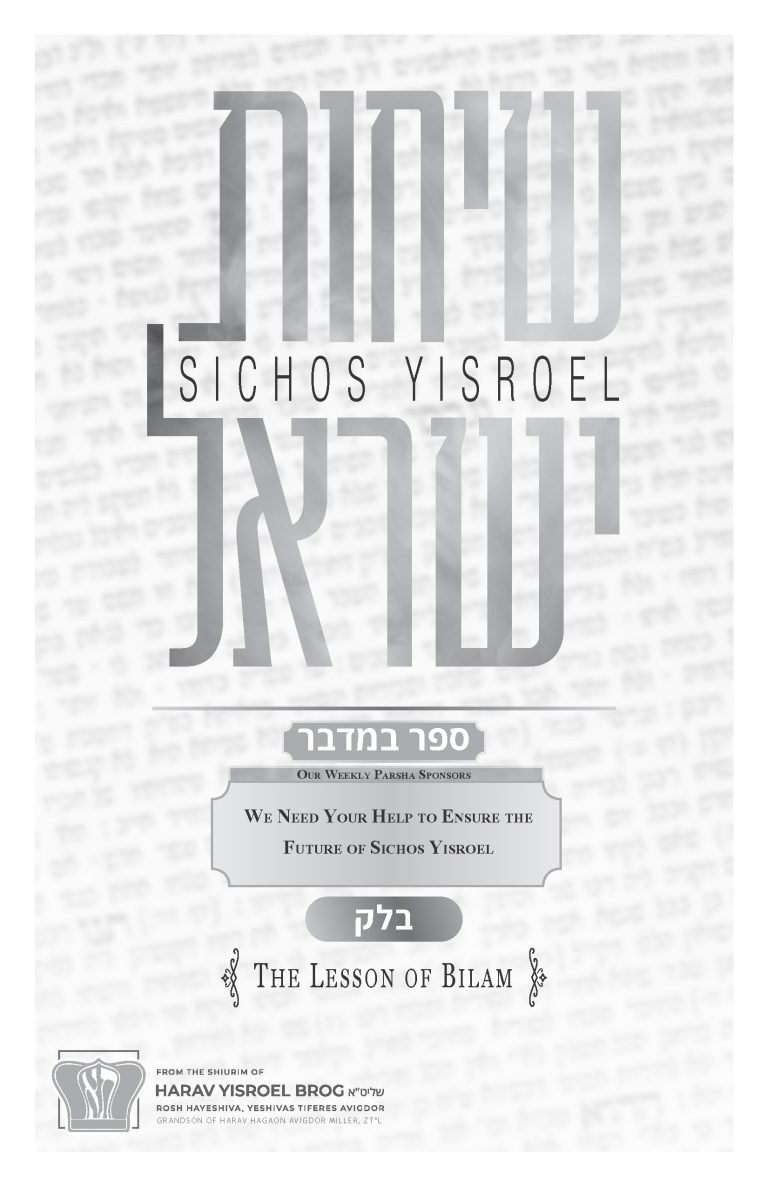
Balak 5784: The Lesson of Bilam
I once met an outstanding, interesting person. He was my driver. He told me an amazing ma’aseh. He got very angry one time. His anger built up over a couple of days, until his blood pressure boiled over and he had a massive heart attack that sent him into a total coma. He was in a coma for three or four months. People were davening for him, but his condition was not improving. Gornisht. Finally, a very special rav came to this fellow’s room and davened in his room shacharis, minchah,and Ma’ariv out loud. After a week of davening and saying Tehillim, finally he said to the guy, “Steven! It’s time to wake up! Do you want to wake up?”
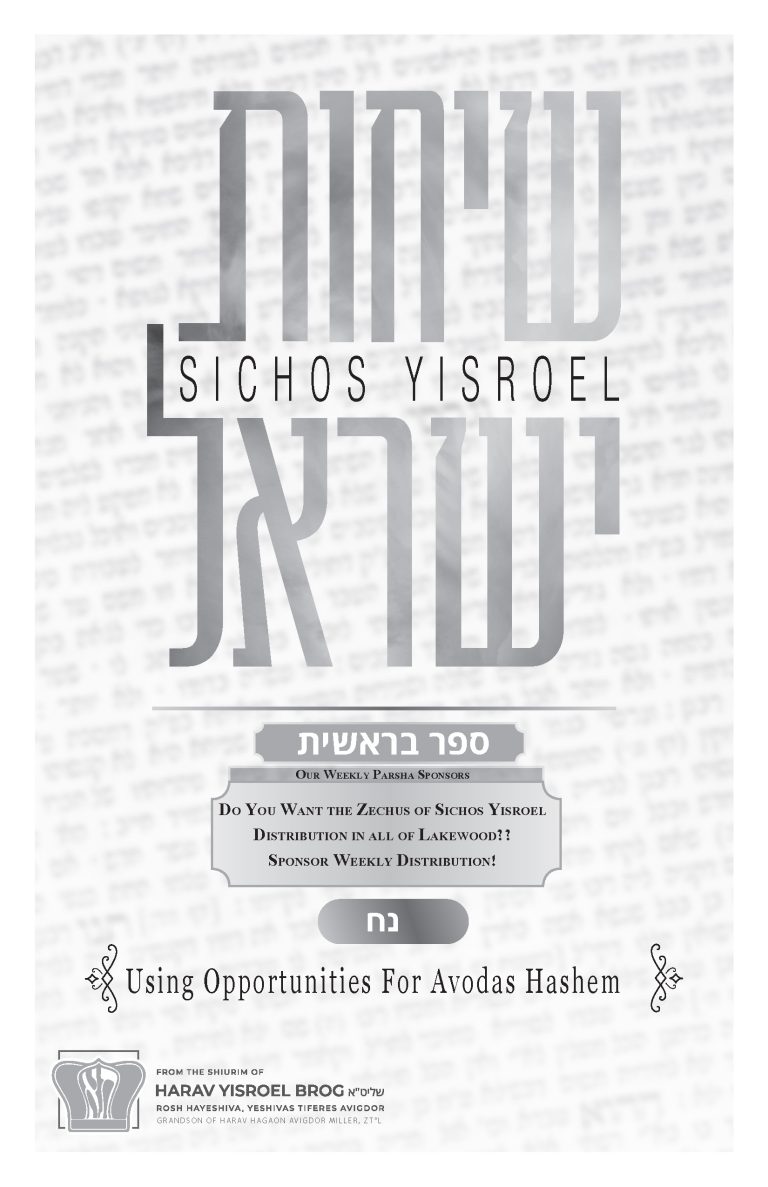
Parshas Noach: Using Opportunities For Avodas Hashem
What we’re going to discuss today is the sugya of the mabul. Now, if you want to study the mabul, the source of studying the mabul is the gemara in Sanhedrin.
The first thing we’re going to discuss today is what brought about the sin that caused the mabul. We’re going to study this aspect. We want to understand what caused man to fall to the point they did?
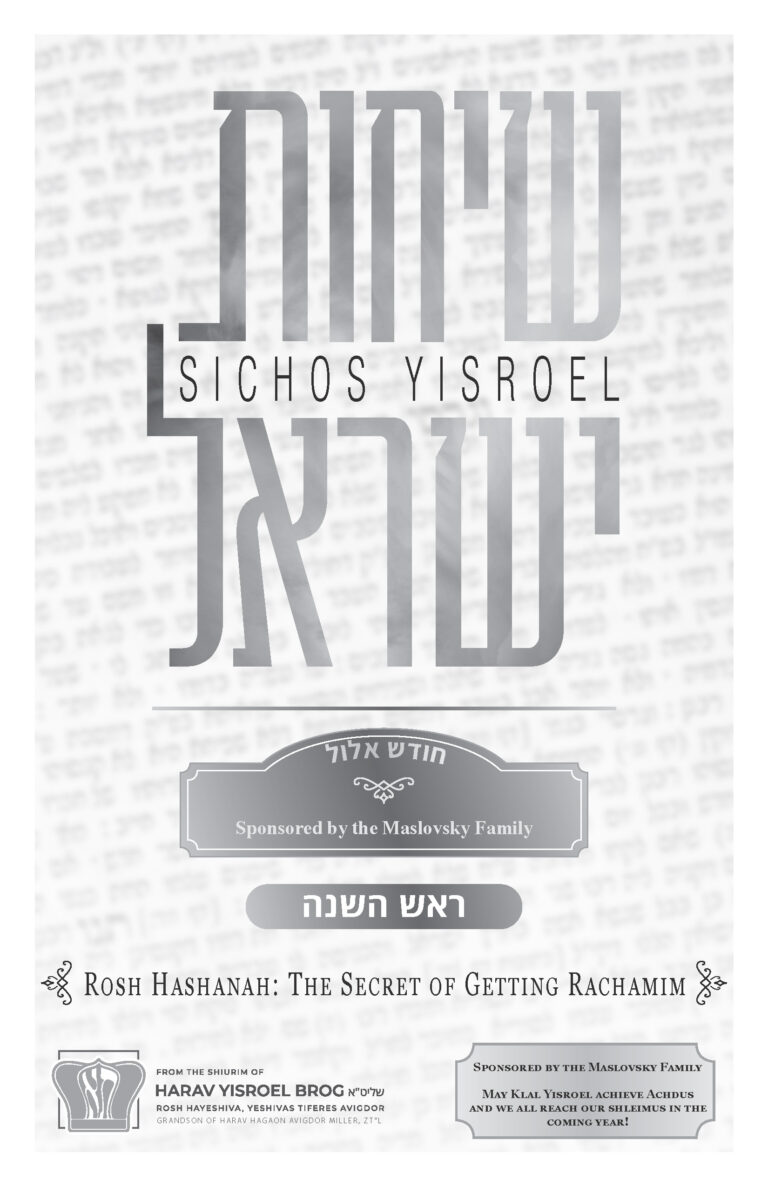
Rosh Hashanah 5784: The Secret of Getting Rachamim
We are approaching the end of the year. What’s coming in a couple of days is the day of mishpat, of judgment. If a person would take into account the mishpat that he got last year and think about what kind of maasim he is presenting to the Ribbono Shel Olam, he might become afraid.